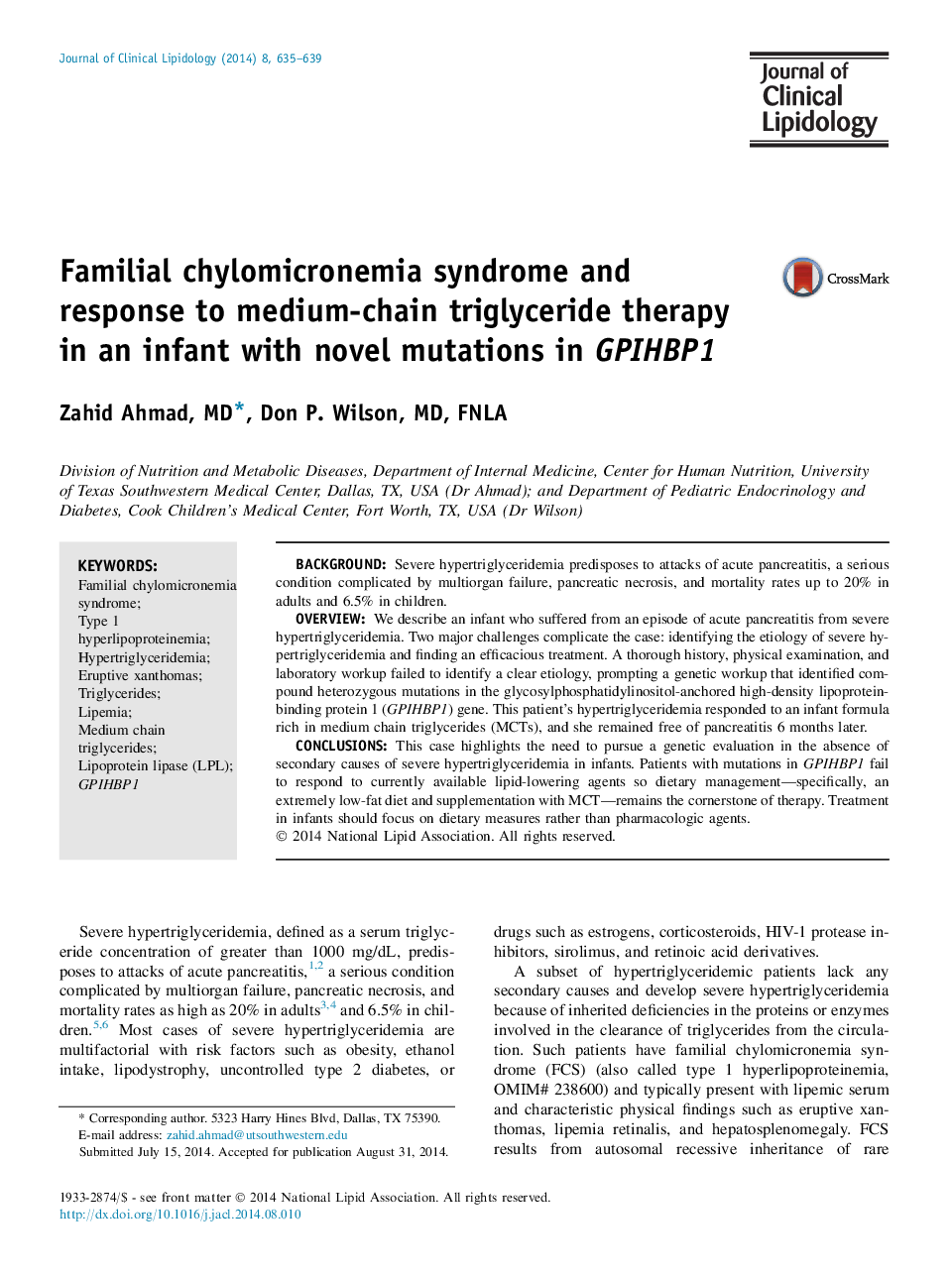| Article ID | Journal | Published Year | Pages | File Type |
|---|---|---|---|---|
| 5985847 | Journal of Clinical Lipidology | 2014 | 5 Pages |
â¢FCS manifests as severe hypertriglyceridemia.â¢Lipid-lowering drugs fail to reduce triglycerides in patients with FCS.â¢This patient has biallelic mutations in GPIHBP1.â¢Treatment with medium chain triglycerides reduced triglycerides.
BackgroundSevere hypertriglyceridemia predisposes to attacks of acute pancreatitis, a serious condition complicated by multiorgan failure, pancreatic necrosis, and mortality rates up to 20% in adults and 6.5% in children.OverviewWe describe an infant who suffered from an episode of acute pancreatitis from severe hypertriglyceridemia. Two major challenges complicate the case: identifying the etiology of severe hypertriglyceridemia and finding an efficacious treatment. A thorough history, physical examination, and laboratory workup failed to identify a clear etiology, prompting a genetic workup that identified compound heterozygous mutations in the glycosylphosphatidylinositol-anchored high-density lipoprotein-binding protein 1 (GPIHBP1) gene. This patient's hypertriglyceridemia responded to an infant formula rich in medium chain triglycerides (MCTs), and she remained free of pancreatitis 6Â months later.ConclusionsThis case highlights the need to pursue a genetic evaluation in the absence of secondary causes of severe hypertriglyceridemia in infants. Patients with mutations in GPIHBP1 fail to respond to currently available lipid-lowering agents so dietary management-specifically, an extremely low-fat diet and supplementation with MCT-remains the cornerstone of therapy. Treatment in infants should focus on dietary measures rather than pharmacologic agents.
